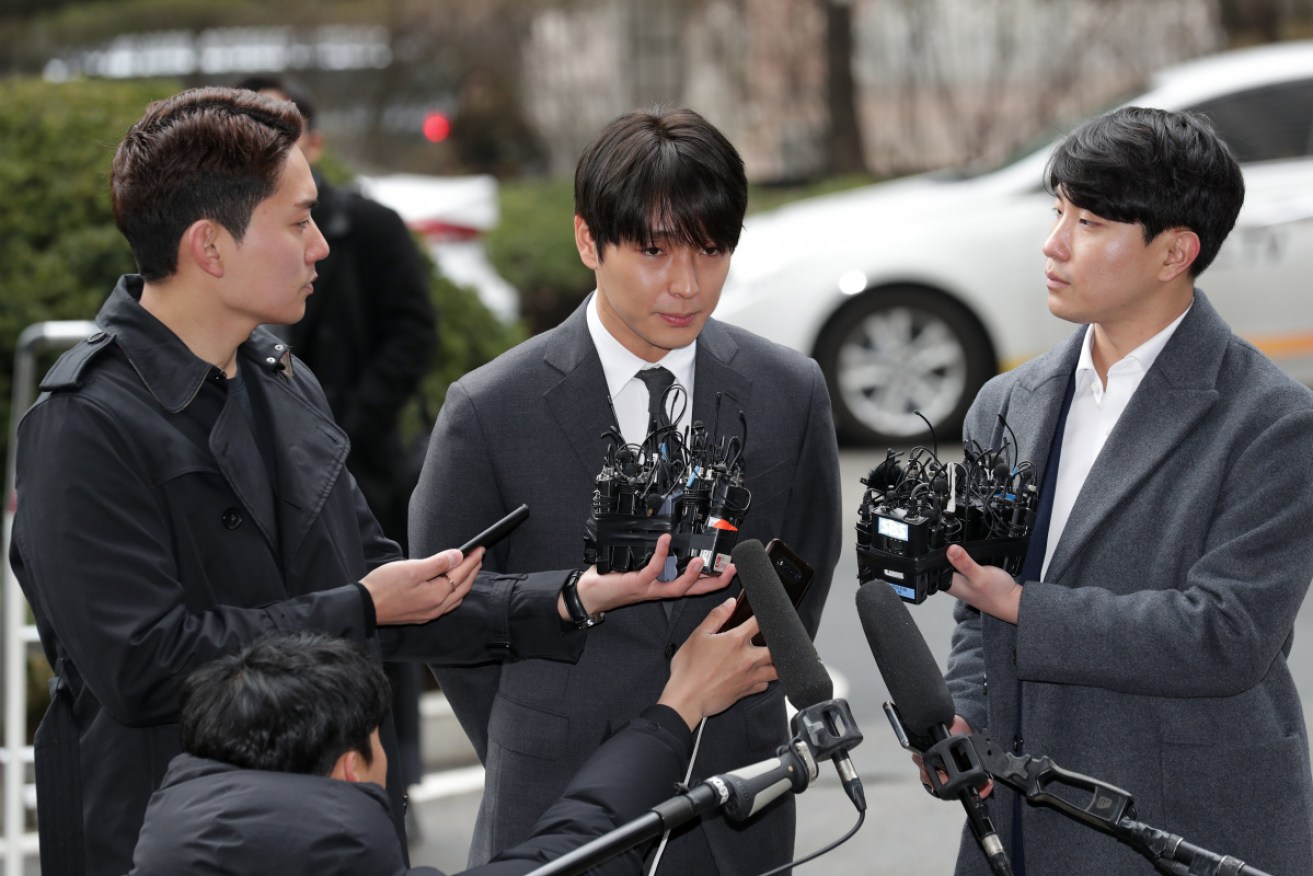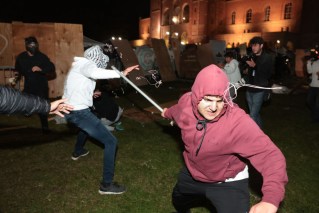Jailed K-Pop idols uncover South Korea’s spy camera problem


Former K-Pop idol Choi Jong-Hoon, also known as Jonghoon, has been jailed for sexually assaulting women. Photo: Getty
The jailing of two popular K-Pop idols for gang rape has exposed South Korea’s epidemic of spy cameras targeting unsuspecting women.
Singer-songwriter Jung Joon-young, 30, and former member of boy band FT Island, Choi Jong-hoon, 29, were found guilty on Friday of gang-raping two different women in two separate incidents in 2016.
Jung was also convicted of secretly filming himself having sex with other women without their knowledge and sharing it in an online group chat.

Jung Joon-Young. Photo: Getty
Jung was jailed for six years and Choi for five.
“Jung and Choi took part in gang-rape of victims who were intoxicated and unable to resist,” the verdict said, as reported by South Korea’s Yonhap news agency.
“It is hard to fathom the extent of suffering the victims must have gone through.”
Their convictions follow the sudden death of K-Pop singer Goo Hara, who was found dead at her home in Seoul last week.
Months earlier, Hara had taken her ex-boyfriend to court after he threatened to ruin her career by releasing footage of them having sex that he had secretly filmed.
Police have not shared further details about the exact cause of the 28-year-old’s death, but they are investigating what led to her mental state.
The recent spate of public sex crimes against women has sharpened the lens on South Korea’s enormous ‘molka’ problem, where men secretly install spy cameras to film women without their knowledge and upload the footage to porn sites.
Public toilets, change rooms and hotel rooms are a minefield of hidden cameras.
In a country known for its cutting edge technology, even the most innocuous objects like pens and car keys pose a threat.
That smoke alarm in your hotel room in Seoul could be secretly capturing you getting changed after a shower, and that man holding a cigarette lighter behind you on the escalator could be filming up your skirt.

A cigarette lighter with a built-in camera. Photo: Getty
These gadgets can be bought for as little as $160.
Since 2012, the number of spy cam crimes reported to police in South Korea skyrocketed from about 2400 to nearly 6500 in 2017.
Last year, around 5500 people – 97 per cent men – were arrested for molka offences, according to police statistics.
In general, about 98 per cent of convicted offenders are men, while more than 80 per cent of victims are women.
Macquarie University’s Dr Sarah Keith, an expert in Korean popular culture, said the proliferation of spy cams was an “epidemic across South Korea”.
“Korea is not very good when it comes to gender equality,” Dr Keith told The New Daily.
“Having said that, these social problems go on in the West as well and extend beyond K-Pop and Korea.”
In South Korea’s conservative, patriarchal culture, women who appear in spy cam videos often feel a deep sense of shame and embarrassment.
Recently, they have joined forces and turned their humiliation into anger.
Last August, more than 70,000 South Korean women protested against molka in Seoul, holding signs saying “My life is not your porn”.

Tens of thousands of furious South Korean women rallied in Seoul in 2018 over molka offences. Photo: Getty
It was the fourth protest that year slamming molka crimes and the largest women-only rally in the country’s history.
Some have even formed secret camera hunting squads, checking public bathrooms and change rooms all over the country.
People caught filming and distributing intimate videos without consent face up to five years in prison or a fine of about $39,000.
But the prospect of jail time and a hefty fine is not a big deterrence.
In 2017, only two per cent of people arrested over molka allegations were jailed.
Lifeline 13 11 14
1800 RESPECT








